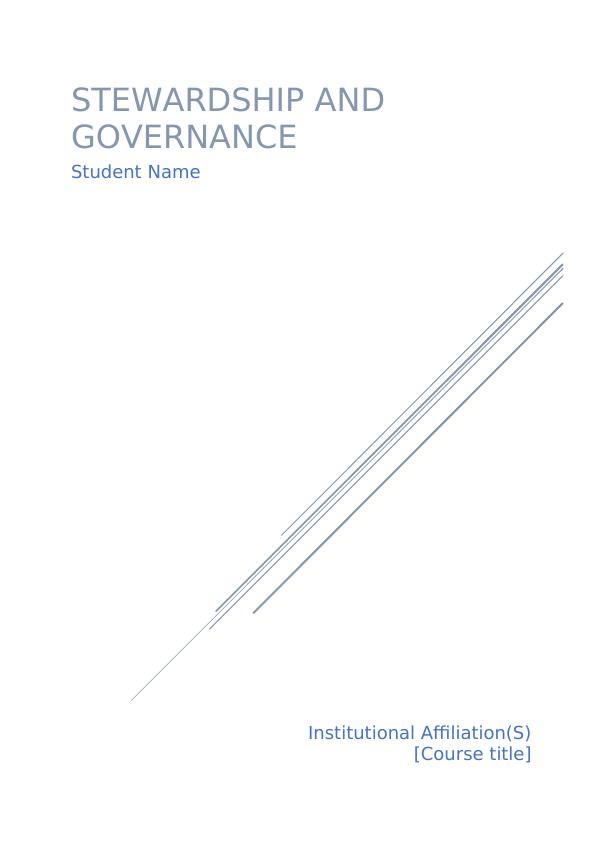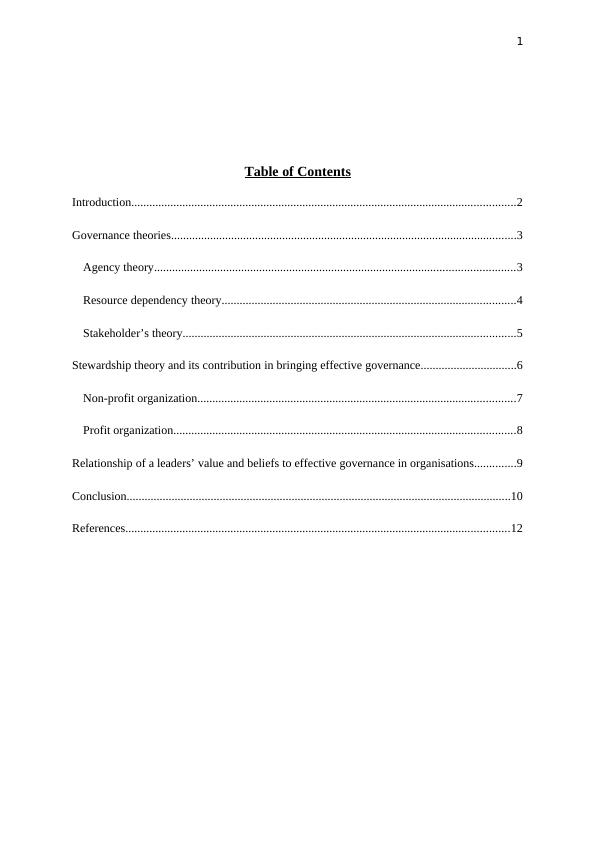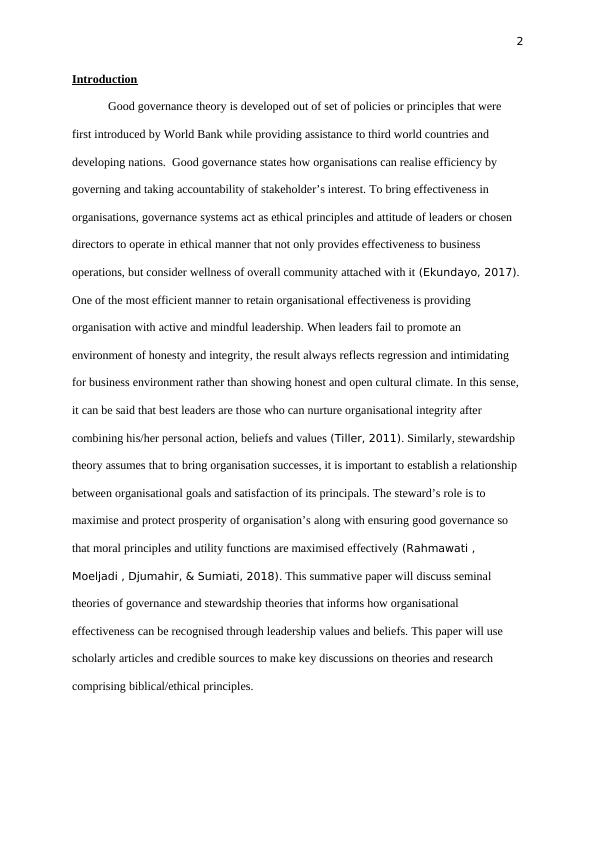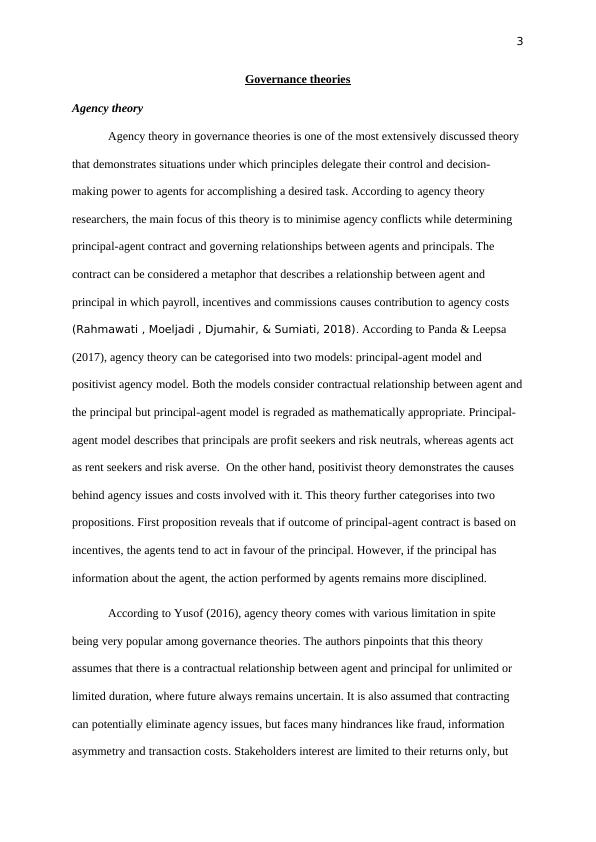Stewardship and Governance: Theories and Contributions to Effective Governance
15 Pages3705 Words64 Views
Added on 2023-01-20
About This Document
This article discusses the theories of stewardship and governance and their contribution to effective governance in organizations. It explores agency theory, resource dependency theory, and stakeholder's theory, highlighting their key concepts and limitations. The article also examines the relationship between a leader's values and beliefs and effective governance in organizations. It provides insights into how leaders can promote ethical leadership and create a culture of good governance.
Stewardship and Governance: Theories and Contributions to Effective Governance
Added on 2023-01-20
ShareRelated Documents
End of preview
Want to access all the pages? Upload your documents or become a member.
Governance and Stewardship
|14
|3576
|22
The role of leadership values and beliefs in effective governance
|9
|3012
|256
Governance and Stewardship
|13
|3023
|399
Seminal Theories of Governance and Stewardship in Organizations
|13
|2884
|73
Stewardship and Governance: Key Theories, Contributions, and Relationship to Effective Governance
|10
|3296
|40
Theories Of The Governance
|10
|3379
|16




